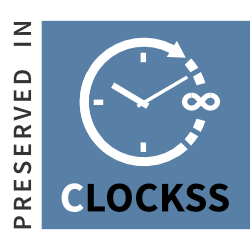Evaluation of Plasma Glycosaminoglycan in monitoring the patients of Renal cell carcinoma after Nephrectomy
DOI:
https://doi.org/10.53992/njns.v8i2.128Keywords:
Glycosaminoglycans, Nephrectomies, Renal Cell CarcinomaAbstract
Renal cell carcinoma is the thirteenth most widespread malignancy worldwide and is the leading cause of urogenital tract cancers. Worldwide, renal cell carcinoma is sixth most prevalent cancer in males and tenth most in females. Its diagnosis is based on histological findings and CT scans that were performed for isolated symptoms. Treatment options include chemotherapy, radiofrequency ablation, nephron-sparing surgery, and radical nephrectomy. Therefore, there is a need for an early non-invasive bio marker for diagnosis, disease surveillance, as well as for monitoring of RCC after therapy. Objective: To determine the role of plasma glycosaminoglycans levels for monitoring and prognosis of renal cell carcinoma patients after nephrectomy. Methods: A Cross sectional study was taken place at Armed forces institute of Pathology in collaboration with Armed forces institute of urology from July 2021 to Dec 2022. A total of 124 samples were included in study, out of which 62 samples were collected from pre-operated patients and another 62 from same RCC patients after operation. Plasma Glycosaminoglycans levels were analyzed through manual enzyme linked immunosorbent assay by non-competitive sandwich technique. Quantitative variables were calculated by means and standard deviation while qualitative variables were assessed as frequency and percentage. Paired t test was applied to check statistical significance of the difference between the means of pre-operative and post-operative cases. Results: Mean age of total population was 39.24±15.90 years. Taking in account age, gender and staging of pre- and post-operative patients, the results revealed significant post-Surgical decrease in plasma glycosaminoglycans levels (p value <0.05). In renal cell carcinoma patients 74(61.7%) were in T2NM0 stage while 31(25.8%) in T3NM0 stage and 15(12.5%) in T4NM0 stage. Majority of patients lied in T2NM0 stage while T3NM0 stage was common in males and T4NM0 stage in females. Conclusion: Plasma glycosaminoglycans levels is a potential biomarker in post-surgical phase of RCC patients. It can be utilised as a promising marker to monitor RCC patients after nephrectomy. The non-invasive nature of the test will help monitoring of such patients which will prove convenient for both patient and treating surgeon.




